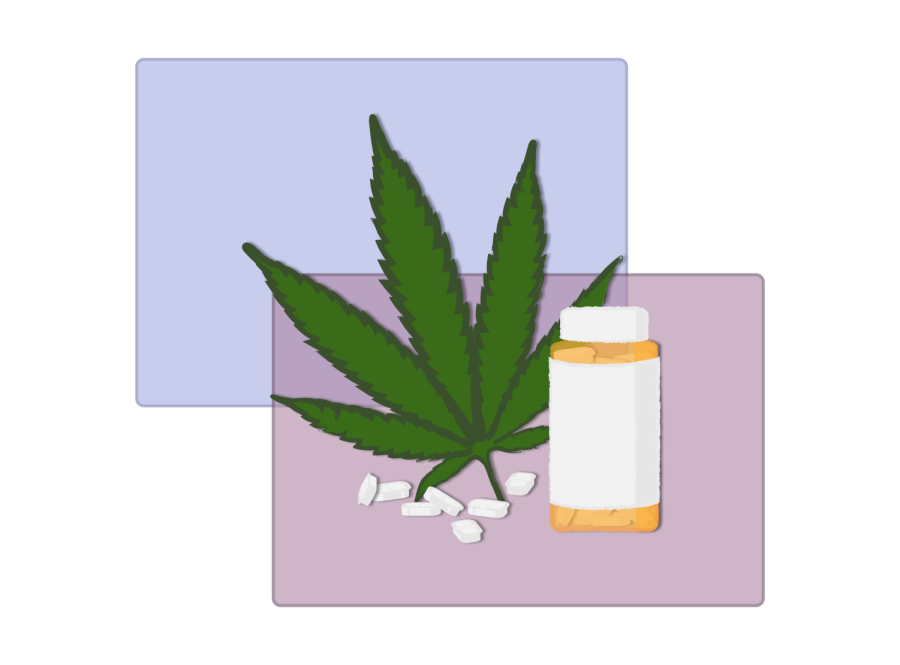WSU researchers study risks of mixing drugs
Taking cannabis, hydrocodone could lead to addiction, overdose
August 26, 2022
The National Institute of Health awarded a $38,521 grant to a doctoral candidate at WSU Spokane to research drug-drug interactions between cannabis and hydrocodone, a type of opioid.
The F31 grant is an annual training grant for graduate students pursuing their doctorate degree, said Philip Lazarus, pharmaceutical sciences professor at WSU Spokane.
Opioids are some of the most effective drugs for treating pain, but they are also highly addictive, which has resulted in a widespread epidemic across the U.S., said Shelby Coates, doctoral candidate at WSU Spokane.
The aim of investigating these drug-drug interactions is to better understand the risks of mixing cannabis and hydrocodones, like Vicodin, together, Coates said.
“Some people use cannabis for pain, especially CBD, and if they’re taking it without telling their doctor with prescriptions like hydrocodone, it could cause a drug-drug interaction, or cause side effects,” she said.
They are examining the metabolism, or breaking down, of cannabis and hydrocodone in the human body. Cannabinoids, the natural compounds in cannabis, may inhibit, or block, the metabolism of hydrocodone, she said.
If this were the case, hydrocodone would break down less easily in the human body and could start to build up in the bloodstream, Coates said.
This could increase the risk of addiction and toxicity, and may even lead to overdose, Lazarus said.
“In someone who is consuming a tablet of hydrocodone four times a day, and they’re also smoking a joint, maybe those levels of hydrocodone are going to stay high,” he said.
There are over 500 different cannabinoids in cannabis. Among those being investigated are THC, CBD, CBN and THC metabolites, compounds derived from THC through metabolism in the human body, like 11-OH-THC, Coates said.
She said the basis of the study comes from a recent paper Lazarus contributed to, which was published in 2021.
Cannabinoids were found to competitively inhibit major enzymes in the liver, potentially blocking them from metabolizing drugs, according to the paper. In addition, some of these cannabinoids may exist in the bloodstream for a longer time and in higher concentrations than THC.
“Now what we want to do is show that for these enzymes, the metabolism of hydrocodone decreases when you add in a cannabinoid like THC or CBD,” Lazarus said.
He said the current research has been done completely in vitro, in test tubes. Once the findings from the current study are complete in the summer or fall 2023, the research will likely move on to clinical trials in humans.
These clinical trials will involve a collaboration with the WSU College of Nursing in Spokane, which works with patients who take medications for pain, he said.
They will use a technique called mass spectrometry to examine the bloodstream of patients that take both cannabis and hydrocodones to monitor the levels of hydrocodone, he said.
Coates said the findings of this research will ultimately help doctors inform their patients of the risk of combining cannabis and hydrocodones, alleviating the worst-case scenario risk of overdose.
If you or anyone you know is struggling with addiction, seek aid at Cougs for Recovery or other community resources.















